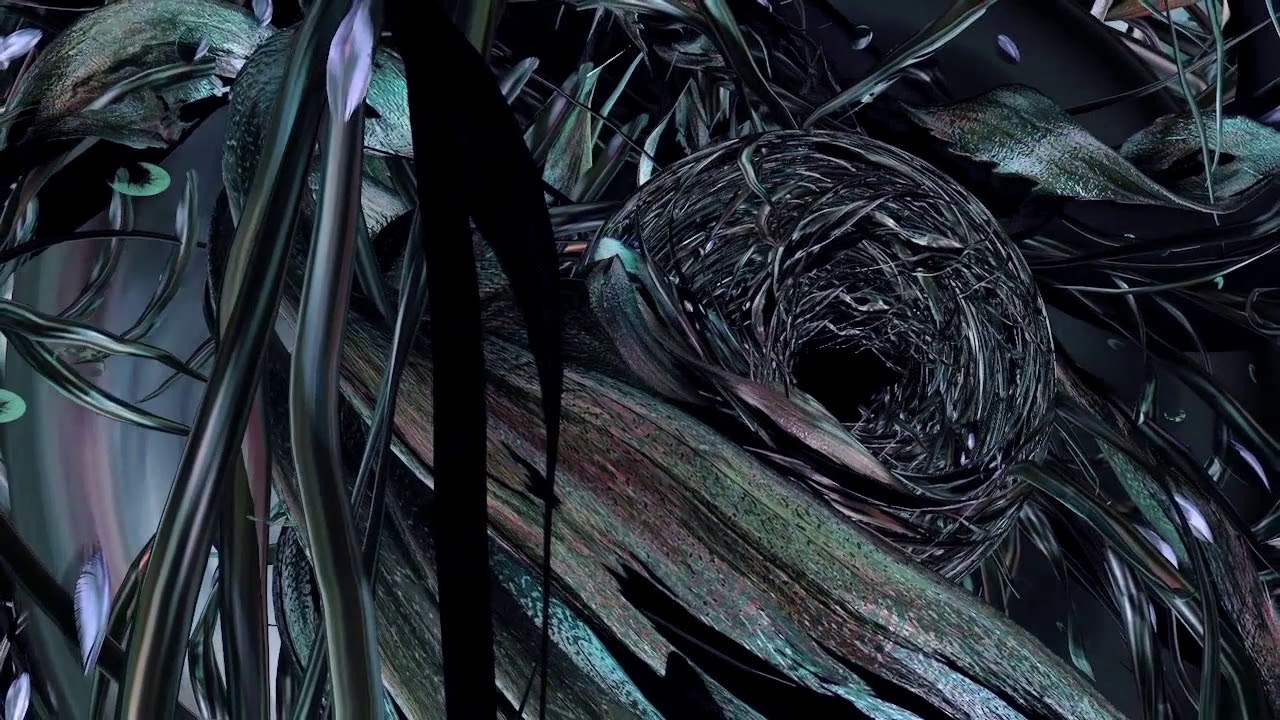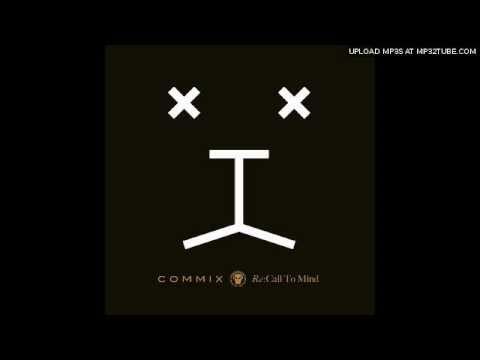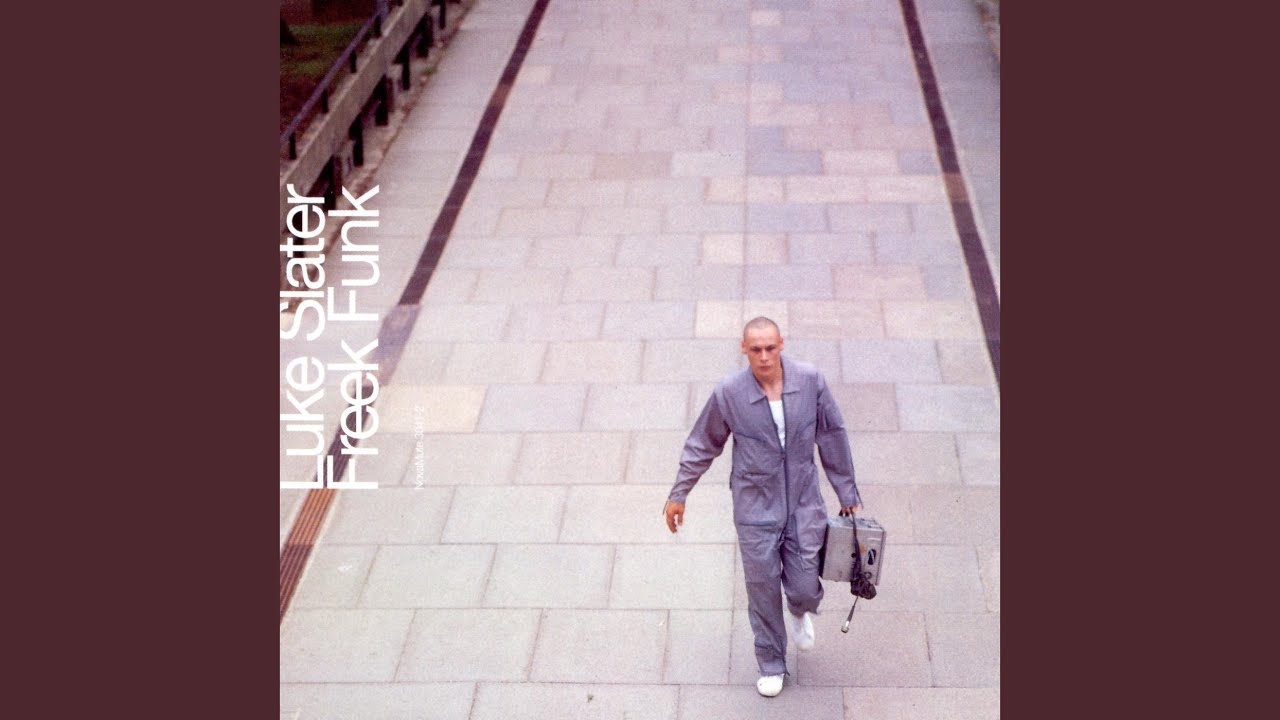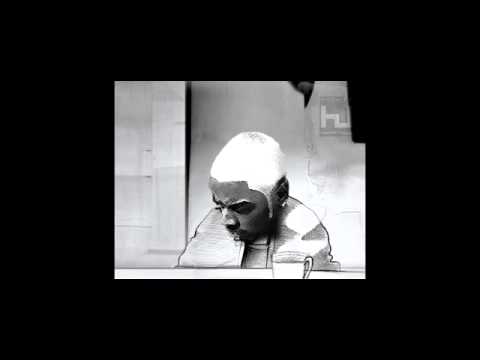
The Death and Rebirth of Aquarian
"There's a euphoria–a catharsis in unleashing destruction."
An ouroboros, a creature originating from Egyptian mythology, swallows its own unfurling tail. Aquarian’s debut album title, The Snake That Eats Itself, releasing digitally tomorrow on Bedouin Records, directly references this ancient symbol as a conduit through which he communicates the revolutions of death and rebirth as a young artist in a rapidly accelerating, and often unforgiving, industry. This is perhaps why the Berlin-based, Toronto-reared DJ and producer begins his full-length with track “End Credits,” a long, contemplative drone flickering with faint vinyl static, and humming with a plaintive melody line that glides like a bird of prey surveying the wreckage from above. As with any final exit, the space clears for transformation.
“Hate Is A Strong Word,” a two-part song off the release, considers this dialectical opposition through its emotional response. “That tune has a sort of personal relationship to feeling this destructive current,” he says. “But also there’s a euphoria–a catharsis in unleashing destruction.”


In person, Aquarian speaks of these brooding elements with a matter-of-fact candour. He occasionally adjusts his grey framed glasses, giving the more vulnerable junctures of our conversation a kind of analytical distance. We’re both sitting at his regular spot, an Italian restaurant La Bolognina in the Berlin neighborhood of Neukölln. He orders the evening special of homemade ravioli with mortadella, cashews, and parmesan and a glass of natural wine. Behind us, a butcher slices thin rounds of prosciutto crudo onto an open wood counter. “Italian is one of the few things that Berlin does well,” he tells me. He’s been visiting this city for three month stints since 2012, until relocating officially in the summer of 2018.
Given his transience, Aquarian considers patterns of ephemerality often. Much of his framework for his electronic music education was sculpted, as it often is for contemporary artists in the field, by genres that have since receded from the limelight, like trip-hop, dubstep, and post dubstep. Growing up in Toronto, a city that he reminds me was a rave capital in the ‘90s, Aquarian’s nascent entry into this world was marked by video game soundtracks like Streetfighter, downloading trance pop off Napster, and making cinematic soundscapes on Fruity Loops. Then, around the time when he was 18-years-old, he found bass.

It was in the countercultural neighborhood of the Kensington Market, at a Caribbean dive bar named Thymeless with lax weed smoking policies that hawked ready-made Jamaican patties, where Aquarian frequented his first Dubslingers party. “You had these insane stacks for a 40-50 person venue,” he says, “When you walked in, all the walls would be shaking. That was my first taste of proper dubstep.” His appetite for low-end frequencies continued when he relocated to New York to study photography at Parsons School of Design.
During these years, he attended Dub War, the first American dubstep night outside of the UK that was run by resident Dave Q, in a basement club called Love in the heart of Greenwich Village, where the genre’s originators such as Coki, Kode9, and Mala circulated alongside some of Aquarian’s visiting hometown heroes, DJs XI and DJG. Between Love’s dingy grotto and the “playground” that was the 24 hour Best Buy flagship at Union Square, where he and his friends would “fuck around with DJ gear,” Aquarian found he reentry into music. His early productions at the time, he tells me, blended bass pressure with the “wonky hip-hop” within a “American-Scottish axis” of artists including Hudson Mohawke, Rustie, Joker, and Flying Lotus.
Aquarian completed The Snake That Eats Itself around four years ago, when he was still based in New York, so he considers the album a sonic biography that amalgamates and distills his earliest influences of crossover industrial, trip-hop, and film scores. “But the guiding principles,” he noted, “have always been the post-dubstep years in 2010, ’11, and ’12.” As “a diaristic reflection of extreme highs and lows of the time that I was living in,” he says, the recent release at once mirrors the Sturm und Drang of artistic disillusionment, personal upheavals, and urban malaise.
“First of all, [the album] was formed out of a frustration from making club music, because, at that time, my records weren’t doing particularly well. There was some recognition but nobody was really grasping onto it,” he remembers. Between 2014-2016, he didn’t have an audience for his hybrid tastes. He founded his own label, Hanger Management, because he was having difficulty catching the attention of existing ones. “I was pretty sick of trying to make club music and I was like, ‘Let me try to express myself in a way with less restrictions.’ That was a conscious decoupling from the club restraints, which, in a way, was terrifying but also liberating.”
After graduating, Aquarian says he sublimated all of the angst of “going through a period of depression, both falling out of love with the city, going through a break up, and feeling trapped” into the production process. He considered “New York, an Eternity,” the sixth track on The Snake That Eats Itself, as an alternate title for the album. The sparse arrangement begins with a cold synth line that gradually tip-toes into the foreground until growing brittle and falling away. The ‘eternity’ he refers to, in this case, represents the ten years he spent in his rent-controlled Brooklyn apartment on North 3rd and Bedford, the storefront next to which became the new Apple store location in 2016.
“Slapstick Williamsburg” is how Aquarian describes his personal state during the onslaught of gentrification, but, of course, he means this with the darkest humor possible. “It’s the feeling of going through the cycle, waking up every day and just trying to get through,” he reveals to me. “I’m trying to make this album, I’m trying to channel my frustration I’m feeling into this, and then it’s like bashing my head against the wall being demolished at the same time, you know?” Many of the crunchy, metallic elements on “New York” were recordings of the construction noises next door.

Aquarian is now hundreds of miles removed from this past self. The industry acknowledgment he hungered for in New York, which has been growing in recent years with his cosign by Aphex Twin, seems to be reaching a crescendo in 2020. He’s set to play the CTM opening club night at Berghain, and was recently booked for this year’s Dekmantel festival. Even still, releasing The Snake That Eats Itself is for Aquarian what reading aloud a particularly revealing journal entry is for the rest of us: an emotional exercise in recognizing what is distant from and what will always be a part of you.
“I’ve also gone through harder times at recent points,” he admits, “and sometimes at I’ve listened to that album again and it still really speaks to me.” When he reflects back on these moments, he says, he’s arrived at an “understanding that things happen in cycles. Things repeat themselves, especially in music. The one predominant mentality will never stay the same.”
Rather than viewing the inevitability of change with defeatism, he considers it as an opportunity for metamorphosis. Aquarian’s interest in a genre-agnostic style of DJing and his recent entry into video and installation scoring for Canadian-American multidisciplinary artist Sougwen Chung are testaments to this.


At the conclusion of The Snake That Eats Itself, the blinking synthesizers in “Letting Go at Arm’s Length” seep into hymnal-like vocals. The jolty percussion line that takes over and eventually muffles in its second half, mutates into subdued breakbeats on “365 days and counting.” The rhythm’s quickening pace evokes a gradual epiphany of freedom, and a sense of suddenly barreling through the night, towards a brave, new frontier.

Aquarian’s Top 5 Closing Tracks
His debut album opens with the ‘End Credits,’ so what better way to acquaint yourself with the artist than with his soundtrack to the night’s–or rather, early morning’s–conclusion.
CJ Bolland – Carmargue
“R&S Classic from ’92. It’s a proper slice of euphoric and feel good cheesiness in the best way possible, with all the classic M organ sounds and just a soaring, almost naively romantic string arrangement. The bass line breakdown at 4:24 always gets me. Such a positive, driving way to send the ravers off into the daylight.”
DBridge & Vegas – True Romance
“This is one of my absolute favourites from DBridge, with those broken liquid chords, chopped vocal sample playing off that high, distorted Reese bass line and that smooth AF, understated yet super crisp, rolling breakbeat. I closed Berghain with this tune the first time I played there. It’s simultaneously such a beautiful yet propulsive track. It feels like swimming while being propelled by a a giant ocean wave behind you.”
Commix – Japanese Electronics (Instra:mental Moog Remix)
“Some of some of Instra:mental’s most beautiful work, in my opinion; the original can’t touch this remix. Just another soaring, widescreen, cinematic, autonomic cut for an emotional and somewhat introspective end of the night.”
Luke Slater – Love
“Serious lump in your throat, MDMA-tears-in-the-club vibes. Love is just so properly sublime, euphoric, and bittersweet at the same time. This one might be ripe for an Aquarian / AQXDM edit at some point. “
Burial Vs Sisqo – Stolen Thong
“Possibly the greatest tune ever made? Not much else to say here. Listen for yourself if you haven’t heard it before.”
The Snake That Eats Itself is out digitally on Bedouin Records this Friday, and will be available on vinyl on 14.02. Aquarian performs at CTM’s ‘Subsurface Portal’ club night at Berghain this Friday, 24.01.
Whitney Wei is the Editor-in-Chief of Electronic Beats. Follow her on Instagram.
Published January 23, 2020. Words by Whitney Wei, photos by Cecilia Corsano-Leopizzi.






